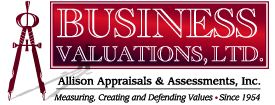For Valuators: We're retained to identify and measure risk and economic benefit. In many cases, woefully inadequate documentation is provided to support company specific risk. Yet, to determine an accurate value, we must provide more intellectual rigor and due diligence. Examine most reports and you'll find financial assessment, but almost nothing concerning the influence of human capital. And if equity value for a non-controlling interest is needed are the impairments ubiquitously referred to as "discounts" tied into the levels of risk (return = growth and income)? The real opportunity in our profession is mastery of operational risks where we work with advisors and owners to manage and occasionally mitigate risks. Thus, lowering the risk, increases company value.
For Owners: If the smartest person in the room is not you, you're likely on your way to having a $10 million, $100 million or greater company. You recognize you must leverage the relationships and knowledge that others offer. This includes your advisors, clients, staff, family, board, association and suppliers. A big hurdle is opting for the familiar faces due to the challenge of trusting others with the "beast" you birthed or gifted or acquired by you. Somewhere, the skills of professional management will be needed to handle the dual roles of daily blocking and tackling versus ensuring long-term, value growth is achieved. It is common to require a governance perspective to codify philosophies, principles and policies that make the company and family distinctly unique. This is even more apparent when the family and business are intertwined while transitions are planned or disruptive to ensure significance is borne from success.
For Attorneys: What is the impact of dated agreements and bylaws or those legal document provisions that may not have been drafted or adhered to? What is the influence of meeting minutes that are not prepared or no indication of key management decisions? If an owner is not having an annual review of the company's risks with an attorney as the steward of same, it stands to reason the value of the company will be lower. What owner wouldn't pay 50 to 1 return on investment? Owners certainly do when insurance is purchased even when no claim is made. Why would this differ for a general practitioner of law, trust & estate or transaction attorney? Consider the alternative? Would you rather pay an attorney much more due to an agreement dispute or a taxing authority audit?
For Accountants: A seasoned CPA can do much more than save taxes. In fact, if you're receiving large refunds you're giving Uncle Sam interest free money that ought to be working for you. If the business owner has real estate, s/he may be able to accelerate depreciation through cost segregation, which lowers taxes. If the CPA has a background as a CFO or is a Certified Management Accountant or offers business advisory services, s/he can also examine whether a company is highly or marginally profitableand why. S/he may make recommendations on what is optimal amounts of accounts receivable, inventory, cash and debt to equity balance. S/he may be able to determine whether sales and marketing expenses are having the desired impact and if labor, repairs and maintenance expenses are consistent with industry norms. A business doesn't operate in a vacuum, so comparison against itself is an inadequate measure of risk. Ask your CPA to "make", not report the news.
For Insurers: Who better than insurance professionals to examine the health and vulnerability of both tangible and intangible assets ranging from cyber-threats to business interruption to a company vehicle involved in an accident to the disability or the death of a key officer and shareholder? The presence of the right level and type of coverage at the most competitive fees that provides liquidity and options can move the value of a company by 50% or more.
The list of trusted advisors are many. I cover these different professionals in Equity Value Enhancement ("EVE"). RISK is the second "R" in the acronym of "GRRK" which stands for Governance, Relationships, Risks and Knowledge and represents how human capital and risk management must be considered in tandem with financial capital to pursue opportunity and differentiate a company and its offerings. Done at the right time with professionals selected in the right way while working in alignment and applying the right framework and roadmap can increase company value by 100% or more in as few as six to 24 months.
For post readers who'd like to try "EVE" before they buy, they can request the first few book chapters here.
